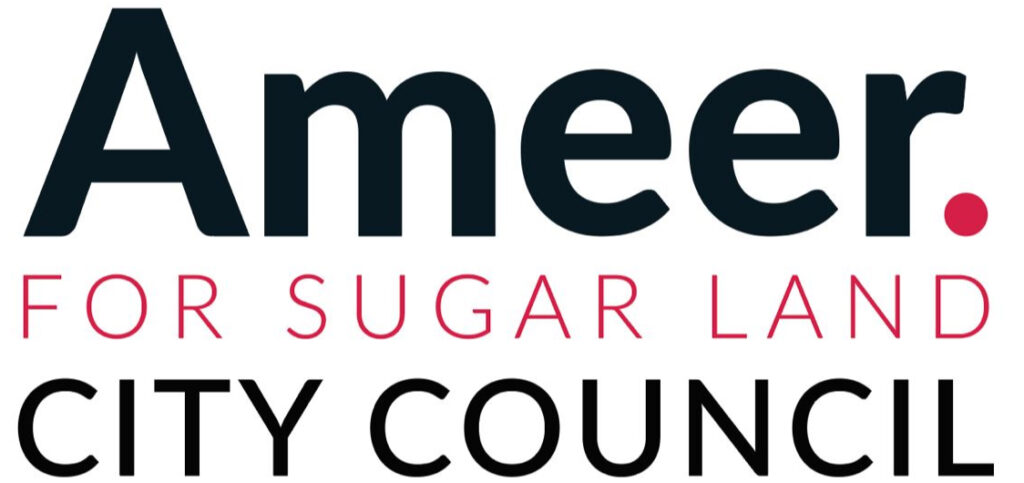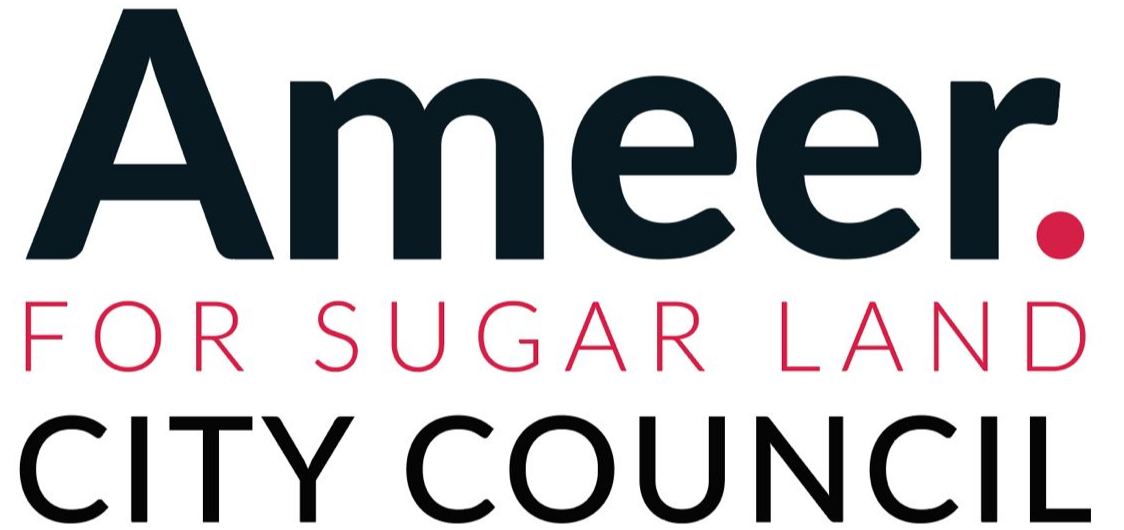About City Council
Representing the Community
City Council members are elected by residents to serve as their voice in city governance. Their primary role is to ensure the concerns, needs, and aspirations of the community are addressed. They do this by:
- Engaging with Residents:* Attending town hall meetings, hosting public forums, and being accessible to constituents.
- Listening to Feedback:* Gathering input on issues like traffic, zoning, public safety, and city services.
- Advocating for Change:* Presenting residents’ concerns during council meetings to shape policies and decisions
In Sugar Land, Council members also represent specific districts, ensuring every part of the city has equal representation
Passing Local Laws and Policies
City Council members have the authority to propose, debate, and enact ordinances that regulate city life. This includes:
- Setting Local Rules:* Establishing policies on noise, zoning, permits, and other municipal matters.
- Amending Existing Laws:* Reviewing ordinances to ensure they remain relevant and effective.
- Ensuring Compliance:* Working with city staff to enforce rules that promote safety and order.
For example, in Sugar Land, zoning laws help preserve the suburban character of neighborhoods while accommodating growth. Policies are often shaped by public input and expert analysis.
Overseeing the City Budget
The City Council plays a critical role in managing the city’s finances. This includes:
- Approving the Budget: Reviewing and adopting an annual budget to allocate funds for city operations.
- Prioritizing Spending: Balancing funding for essential services like police and fire departments with investments in parks, infrastructure, and cultural programs.
- Ensuring Fiscal Responsibility: Monitoring expenditures to prevent overspending and ensuring taxpayer money is used efficiently.
In Sugar Land, budget decisions impact property taxes, utility rates, and funding for projects like road improvements or new community facilities.
Planning for Growth and Development
City Councils shape how a city evolves by approving development projects and creating a long-term vision for growth. Key responsibilities include:
- Approving Development Projects: Reviewing proposals for new neighborhoods, businesses, and infrastructure.
- Balancing Growth with Quality of Life: Ensuring that development projects include green spaces, schools, and road improvements.
- Updating the City’s Comprehensive Plan:* A roadmap for sustainable growth that aligns with residents’ needs and priorities.
In Sugar Land, projects like the redevelopment of the Imperial Sugar Factory site highlight the importance of balancing historical preservation with future growth.
Ensuring Public Safety
The Council is deeply involved in maintaining the city’s safety. Their responsibilities include:
- Funding Public Safety Agencies: Allocating resources to police, fire, and emergency services.
- Overseeing Safety Initiatives: Supporting programs like neighborhood watch groups, disaster preparedness, and traffic safety campaigns.
- Evaluating Public Safety Needs: Responding to concerns about crime, fire hazards, or emergency response times.
Sugar Land’s reputation as one of the safest cities in the region is a direct result of the Council’s commitment to public safety.
Promoting Community Engagement
A connected and engaged community is essential for good governance. The City Council fosters this by:
- Hosting Public Meetings:* Providing a platform for residents to voice their opinions on city matters.
- Offering Volunteer Opportunities:* Encouraging residents to participate in city-sponsored events, boards, and commissions.
- Sharing Transparent Information:* Using city websites, newsletters, and social media to keep residents informed about projects, initiatives, and decisions.
In Sugar Land, the Council actively promotes community involvement through programs like “Sugar Land 101,” which educates residents about city operations.
Collaborating with Other Agencies
City Councils don’t work in isolation. They partner with regional, state, and federal agencies to address broader challenges, such as:
- Transportation Projects: Working with TxDOT to improve highways and reduce traffic congestion.
- Flood Control: Collaborating with the Fort Bend Drainage District to enhance flood protection.
- Economic Development: Partnering with business associations to attract investments and create jobs.
In Sugar Land, collaboration has been key to addressing traffic issues on Highway 6 and expanding the city’s recreational amenities.
Preserving Quality of Life
City Councils prioritize initiatives that enhance the well-being of residents. This includes:
- -Investing in Parks and Recreation: Expanding access to green spaces, trails, and community centers.
- Supporting Arts and Culture:* Funding festivals, public art projects, and cultural programs.
- Improving City Services: Ensuring clean streets, reliable utilities, and efficient waste management.
Sugar Land’s vibrant community events, like the annual Red, White, and Boom festival, showcase the Council’s dedication to fostering a high quality of life for residents.

